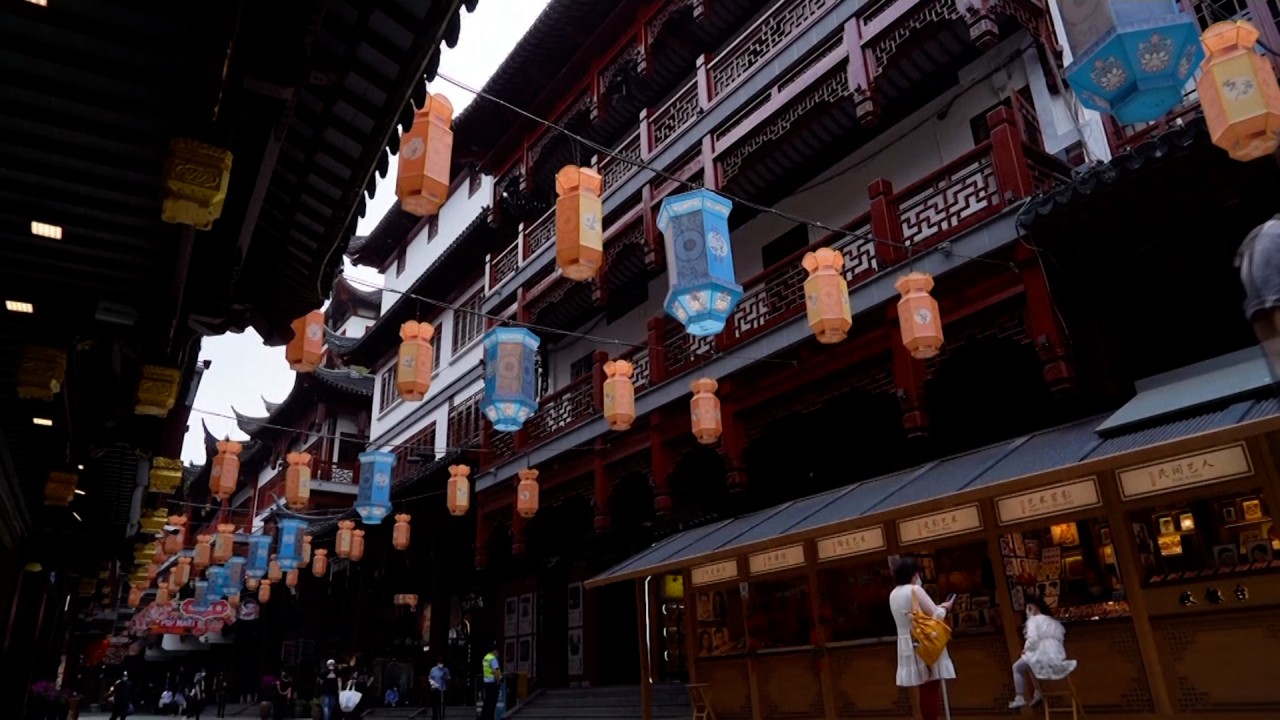
01:29
Shanghai tourist sites remain quiet after end of two-month citywide lockdown

A strained supply chain caused China’s car industry to lose another 400,000 vehicles in production last month as carmakers were unable to churn out enough units to cater to market demand.
But they are expecting busier times ahead after Shanghai, dubbed “China’s Motown”, lifted a two-month citywide lockdown as it looks to get the ailing local economy back on track.
The mainland’s automotive companies built a total of 1.86 million vehicles – passenger cars, lorries and commercial vehicles – in May, down 12.6 per cent on the year, according to the China Association of Automobile Manufacturers (CAAM).
The output was nearly 400,000 units shy of the production volume of 2.24 million in March, when capacity was unhindered by lockdown, but a vast improvement on April.
The vehicle manufacturing sector, one of mainland China’s biggest employers, was hit hard by Covid-19 curbs in the past two months. Lockdowns in Shanghai and the northeastern province of Jilin, a major carmaking base, forced key assemblers such as Tesla, SAIC Motor and FAW Group as well as thousands of supply chain vendors to suspend production.
In April, the industry that provides jobs for one in every six of China’s workforce of 800 million people, lost 1 million vehicles in production. Total output by all vehicle builders plunged by 46 per cent to 1.2 million units.
“Production did not return to the pre-lockdown level in May, although carmakers like Tesla accelerated manufacturing to make up for the lost ground caused by the disease outbreak in April,” said Gao Shen, an independent analyst in Shanghai. “Production and sales might return to normal in June as output and deliveries reach the level in March.”
A wave of so-called revenge spending – consumers splashing out on big-ticket items such as cars following months of lockdown – is likely to take place in July when the entire automotive supply chain is restored, he added.
On April 19, thousands of Tesla employees entered a “closed-loop” bubble that restricted their movements to the assembly line and the dormitories nearby following a three-week production halt during Shanghai’s lockdown.
But it was not until late May that the plant was able to produce 2,600 Model 3 and Model Y vehicles a day, on a par with the level before it paused assembly on March 28.
Beijing halved the tax on car purchases from 10 per cent to 5 per cent on June 1 to help lift the automotive industry out of the slump it suffered as a result of the lockdowns.
The local governments of Guangdong and Shanghai also granted cash subsidies worth up to 20,000 yuan (US$2,980) for every purchase of an electric-powered vehicle to replace a model fitted with an internal combustion engine.
Cui Dongshu, general secretary of the China Passenger Car Association (CPCA), said that more than 20,000 car component makers based in Shanghai and its neighbouring provinces were forced to either suspend production or reduce capacity amid Shanghai’s lockdown that lasted from April 1 to May 31.
Tesla’s Shanghai factory, known as Giga Shanghai, sold 9,825 vehicles to mainland customers last month, nearly seven times its deliveries of 1,500 units in April, according to the CPCA.
Tesla China exported 22,340 cars to markets outside China in May. It began taking orders for its Model Y sport-utility vehicle in Japan, Singapore, Australia and New Zealand as production at Giga Shanghai returned to normal.